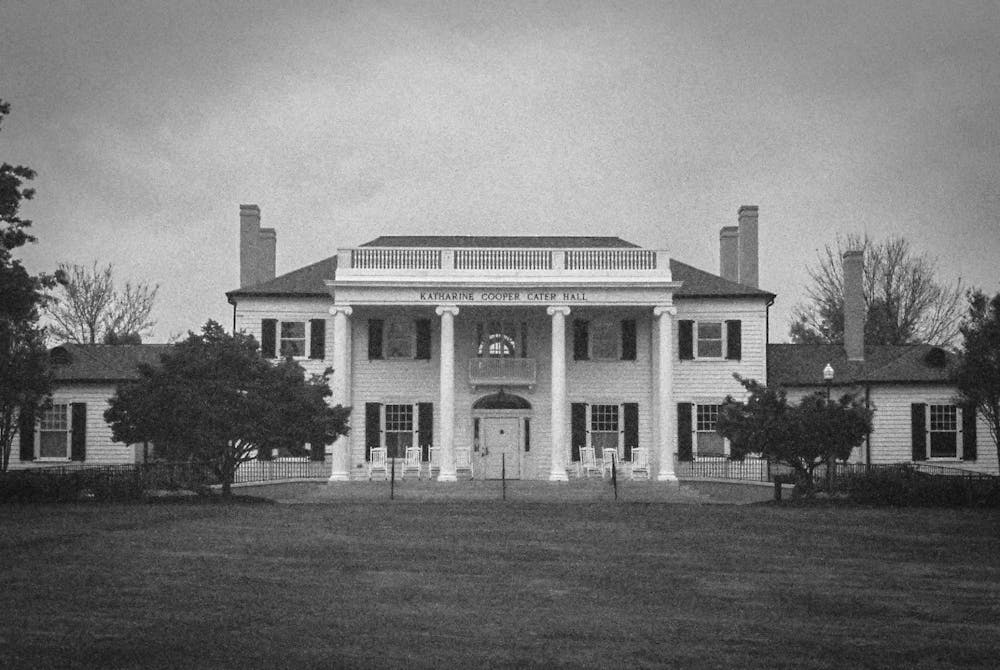Today, Cater Hall houses Auburn University's Honors College, but many Auburn students may not be aware of the place the building holds in women's history on campus.
Cater Hall once served as the mansion for four University presidents and stood as a symbol of prestige and class with its unique Neo-classic design when first constructed in 1915. With the admission of women to the University, it became the Social Center for women and the office for the Quad dormitories for female students.
The Social Center was seen as the “core of student life on campus,” according to the United States Department of the Interior.
In 1946, Katherine Cooper Cater became the new Dean of Women and a role model for her students while residing in the hall now named after her. Although this marked many progressive changes for women, female students were strapped down for decades by strict rules from male-dominated faculty.
“An Auburn woman is expected to conduct herself as a lady at all times,” a 1947-1948 University guidebook on student etiquette stated. “Violation of this standard will result in a request for her resignation from [the University].”
With the social revolutions of the 1960s and early 1970s, including the civil rights and feminist movements, Auburn University co-eds began demanding change.
In 1970, co-eds banded together after a male faculty member denied a female student entry to the Social Center because she was wearing slacks, culminating in “a midnight demonstration against the rules held on [President Philpott’s] campus residence lawn” led by about 20 co-ed members of the AU Women’s Liberation Front, said Norman Brown, writer for the Opelika-Auburn Sunday Newspaper.
A year later, on May 20, 1971, 59 co-eds led by Anita Page, president of the Associated Women Students and Jimmy Tucker, Student Government Association president, organized a sleep-in on the front lawn of the Social Center, the heart of co-ed life on campus.
Zealous proponents of the cause tried to encourage women that were reluctant to participate.
“Women are not losing their femininity, it’s a matter of simple justice,” Page said.
Although the women in attendance supported a united cause, disagreements arose between women who thought the protests would be most effective if they broke the University rules and others who felt it necessary to follow them.
“The ‘sleep-out’ began at 10 that night and ended at about six the next morning. At 10:40, a head count showed that 101 girls were present, but in keeping with the demonstration’s intent to stay within University rules, the girls who had to be in before curfew left to go back to their dorms. By 12:30, no more than half the original number of girls remained,” according to The Plainsman's issue from May 21, 1971.
Despite female students’ vehement calls to action at the start of the 1970s, the strict regulations for co-eds were not overturned until Title IX of the Education Act of 1972 was implemented into law.
“As women today, we're finding ourselves in an ambivalent position ... not willing to deprive ourselves of what we already have until we're more ready to assume other positions,” Cater said in 1972.
John Carvalho, professor in journalism, was an Auburn journalism student from 1974-1978. He said he remembers when the University had to re-organize several parts of campus to make things equal between each gender, including the announcement that male students would be in the quad.
“At the time, Dean Cater was the dean of women and Dean [James] Foy was dean of men and we didn’t know if one of the deans was going to have to go, but they made Dean Foy dean of student affairs and Dean Cater dean of student life,” he said.
The building that was known as the Social Center and the hub of the feminist movement at the University was named Katherine Cooper Cater Hall on April 25, 1980, as a tribute to Cater’s impact and contributions.
“Buildings are named for persons whose lives exemplify the purpose of the building, and Katherine Cater’s love and compassion for individuals, her nourishment and support of women, her gaiety and wit, permeate every room here,” Morris Savage, Board of Trustees member said of the naming at the time.
Information for this story was sourced from Auburn University's Special Collections and Archives.
Do you like this story? The Plainsman doesn't accept money from tuition or student fees, and we don't charge a subscription fee. But you can donate to support The Plainsman.





